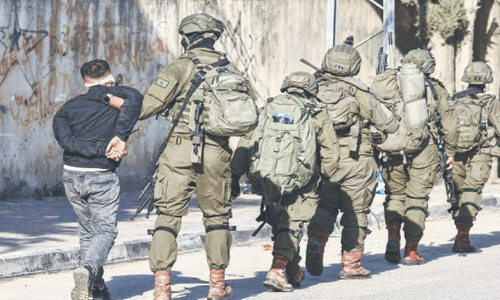The year 1987 saw General Ziaul Haq completing 10 years as president in uniform. Despite completing a decade in power, he was still grappling with political issues at home, and at the same time, struggling to resolve the Afghan issue which appeared to be inching toward its conclusion.
During all these years, the general, with the support of anti-Soviet expansionist forces, had been supporting the jihad waged for the expulsion of the Union of Soviet Socialist Republics (USSR) troops. The USSR had some excuses which it was using to defer the issue for some time, but 1987 was the year when this objective was set to be realised.
Anti-occupation forces did not want to hand the USSR a safe passage to leave without helping to clear the mess first. This in turn led to a moot in Washington between US President Ronald Reagan and Soviet leader Mikhail Gorbachev, where Afghanistan would also come under the spotlight.
Back in Pakistan, Gen Zia too was anxious about the agenda of this meeting. He wanted to communicate his thoughts on the resolution of the Afghanistan issue to President Reagan, particularly some terms and conditions regarding the future set-up of Afghanistan. He wanted these clauses to be worked in the finer details of any accord that might be reached at between American and Soviet delegations.
With the Soviet occupation of Afghanistan drawing to a close, which of General Ziaul Haq and Mohammad Khan Junejo will bag the credit for resolving the issue?
The first of Zia’s three points was that were an agreement on ceasefire to be reached or some ad hoc truce agreed upon between the US and the USSR, no assurances should be extended on the part of freedom fighters.
The second point called for the departure of Soviet troops to be unconditional.
And third, Gen Zia asked for any future government in Afghanistan to be formed before the dissolution of the Najeebullah government and by having the Afghan people exercise their democratic will. He argued that no external party — not even Pakistan or the US — should decide or be involved in this matter as such interference would be resisted by the Mujahideen.
The US president is reported to have responded that these points would be taken into consideration.
On Dec 8, when the American and Soviet leaders met, they had a vast agenda for discussion before them, including Afghanistan, Central America, southern Africa, arms, control of chemical weapons and conventional weapons, strategic arms and Intermediate Range Nuclear Forces Treaty (INF).
In fact, the two superpowers had been working on this agenda since the Moscow Summit. Reagan’s team included former president Richard Nixon and former secretary of state Henry Kissinger, who had worked a lot on the proposed treaty. Gorbachev’s side was weaker in comparison, as only two months back Boris Yeltsin had denounced the proposed treaty. Nevertheless, there were some experts in the delegation, including the former Soviet foreign minister Eduard Shevardnadze.
The moot began with deliberations on human rights; on the second day, it picked up Afghanistan and the Iran-Iraq war. Finally, when the joint declaration was announced on Dec 10, there was no specific mention of the Soviet stand on Afghanistan. However, it extended support to popular movements for attaining the right to self determination in South Asia, which meant that Pakistan’s position had appropriately been upheld.
In February 1988, Gorbachev unilaterally announced that the Soviet Union would withdraw its troops from Afghanistan irrespective of whether an accord is reached in Geneva or not.
In February 1988, Gorbachev unilaterally announced that the Soviet Union would withdraw its troops from Afghanistan irrespective of whether an accord is reached in Geneva or not. The time stipulated for the withdrawal of troops was May 1988. This move perplexed the entire world leadership but to many it was an attempt to save the Soviet Union from more humiliation.
In Pakistan, the reaction of Gen Zia was very different. In Lahore’s Governor House, he told a gathering of army corps that there must be some reason in the background for this announcement to have been made. When asked why the joint declaration did not specifically include the Afghanistan issue, Gen Zia said that perhaps the United States had its own priorities and interests.
After the declaration in Washington, Prime Minister Mohammad Khan Junejo began preparations for any accord which might be reached at in Geneva. The pattern of things in Geneva was that there would be a pact between Pakistan and Afghanistan regarding the departure of Soviet troops, but the United States and the USSR would serve as guarantors of the accord.
Gen Zia, of course, had wanted to emerge as a hero of the Islamic world by freeing Afghanistan of Soviet troops. But he was also acutely aware that with his plans and suggestions, Junejo would gain more prominence since he was the prime minister. For all practical reasons, Junejo had been handling the Afghanistan issue at all stages since he had become the prime minister; but he was unaware of Gen Zia’s actions and wanted to become the architect of purging Soviet Union from Afghanistan.
When the world leadership became conscious of Afghanistan’s situation, Pakistan became the frontline state to undertake a very difficult task of fighting Russian troops. Gen Zia did not want unskilled Afghan nationals to be pushed in the throes of modern war machines, and instead, he encouraged those who were willing to become warriors to get formal training. Many of these men were then trained under the guidance of General Akhtar Abdur Rahman, who lent Pakistan’s war expertise to not only fight the Russians but eventually, to drive them out.
Published in Dawn, Sunday Magazine December 27th, 2015



































